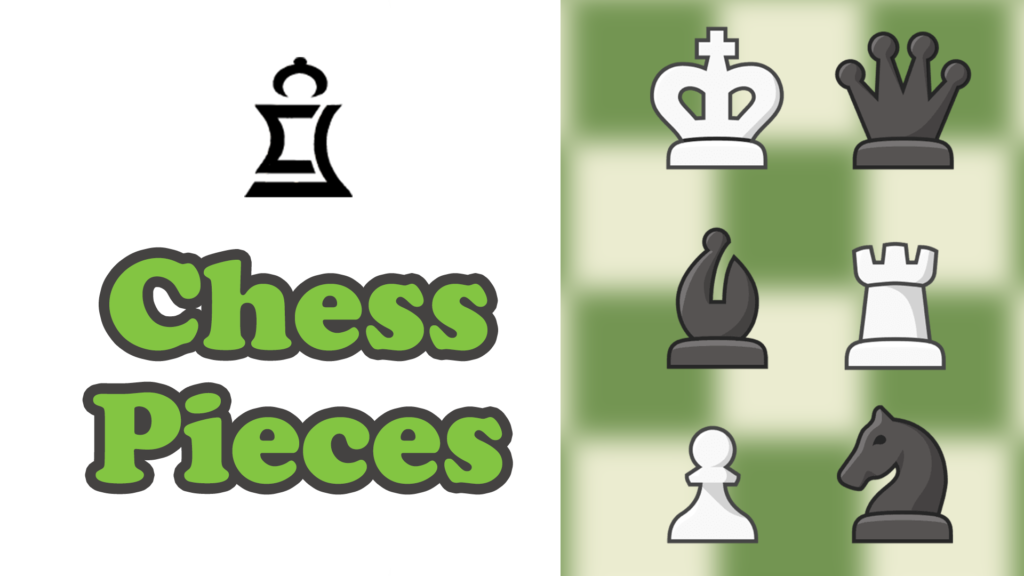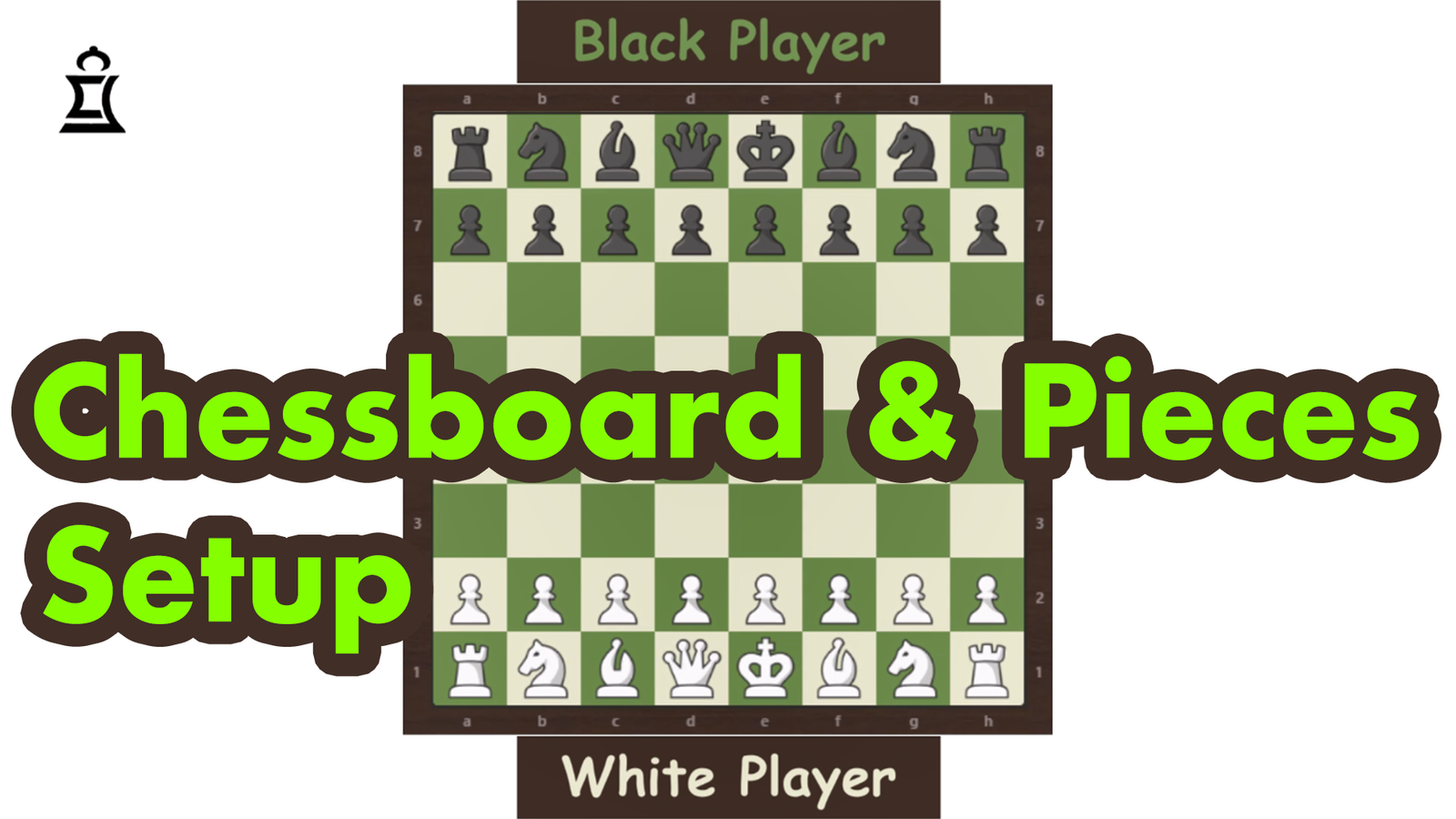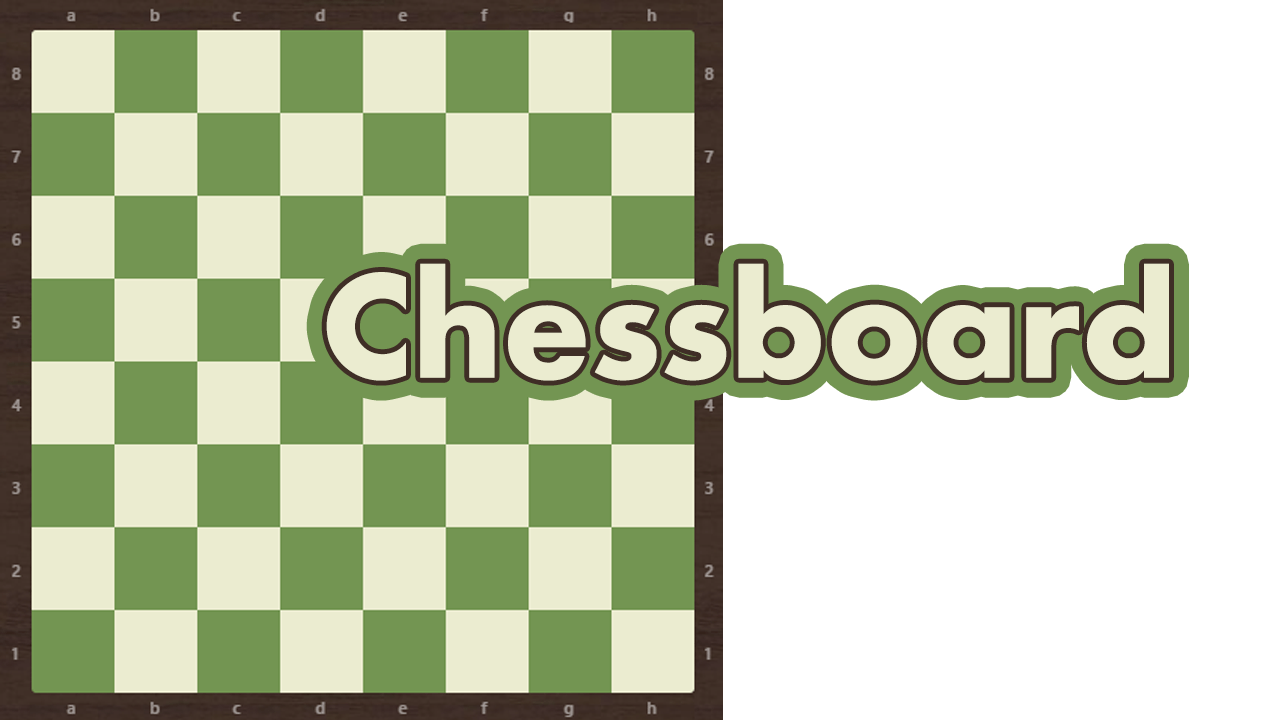We know that a chessboard has 64 squares, which are marked by two different colors.
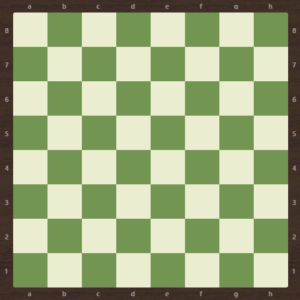
Similarly, chess pieces are divided into two colors—commonly white and black.
In a game, one player navigates the white pieces and the other navigates the black pieces. The player navigating the white pieces is referred to as the “White Player,” while the one navigating the black pieces is called the “Black Player.”
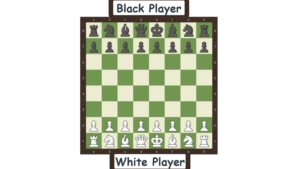
Overview of Chess Pieces
The chess pieces include:
King:

Chess software or websites display it like this.
Queen:
In some regions, the Queen is referred to as the “Minister,” but globally, it’s mostly known as the “Queen,” so we will use this term.

Chess software or websites display it like this.
Rook:

Bishop:

Knight:

Pawn:

Thus, the six types of chess pieces are:
- King,
- Queen,
- Rook,
- Bishop,
- Knight, and
Among these, all the pieces except for the pawn are considered “Power.”
Number of Pieces
At the start of a game, there are 32 pieces in total. Each player begins with an equal number of pieces—16 white and 16 black.

The White Player’s pieces include:
- 1 King
- 1 Queen
- 2 Rooks
- 2 Bishops
- 2 Knights
8 powers, along with 8 pawns, making a total of 16 pieces.
Similarly, the Black Player’s pieces include:
- 1 King
- 1 Queen
- 2 Rooks
- 2 Bishops
- 2 Knights
8 powers, along with 8 pawns, totaling 16 pieces.
Even though the game starts with these 32 pieces, players can remove their opponents’ pieces from the board based on the rules. Once removed, a piece can no longer participate in the game. In chess, this process is called “Capture” . As pieces are captured, the number of pieces decreases.
Additionally, a player can promote a pawn into any power except the king. This process is known as “Pawn Promotion,” and it can change the number of powers. The game continues this way until a result is achieved meaning the game ends. We will discuss thesesubjects in detail later.
For now, this overview of chess pieces should suffice.

